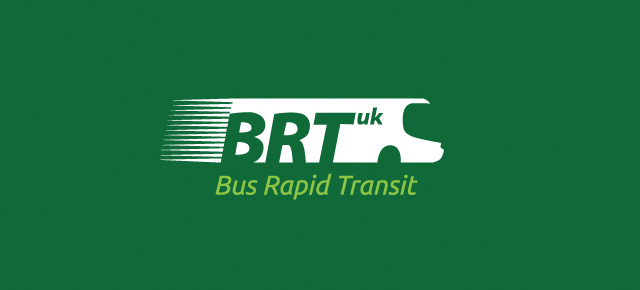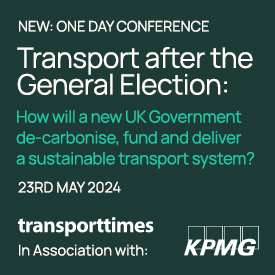Covid has changed the way we travel. BRT can do the same, by providing reliable, frequent, direct and cost-effective transport. Join the conversation!
By James Freeman
Covid has done funny things to people’s habits – it’s going to take a long time to recover the patronage levels we used to have. I remember reading somewhere that the damage done to bus patronage in London by the 1958 bus crews’ strike took 30 years to overcome. Unless we take decisive action, the same can happen with the recovery from Covid.
It’s not just the message, which came from the prime minister’s lips at the start of the lockdown in 2020 and was oft-repeated thereafter, that people should not use public transport, but the fact that inevitably, after such a long time a lot of people’s way of life has just changed – and they won’t change back automatically.
So we have got to get really good at encouraging people back onto public transport in general and buses in particular. At one stage it looked as though we might be going to see a very large amount of public money dedicated to that encouragement. Inevitably that has dwindled somewhat, although there is still a big slug of money being shared out.
We are seeing a quiet but perceptible increase in interest in Bus Rapid Transit (BRT) across the country as an affordable, flexible, high grade answer to making public transport reliable, frequent, direct and cost-effective
On the other hand, congestion is not going away. In our towns and cities, and between them, capacity levels are frequently reached and the resulting congestion causes chaos. The dash to switch to electric cars does nothing but encourage congestion, even if it is greener congestion. So there is an increasing realisation that steps have to be taken to keep things moving – hence we are seeing a quiet but perceptible increase in interest in Bus Rapid Transit (BRT) across the country as an affordable, flexible, high grade answer to making public transport reliable, frequent, direct and cost-effective.
Obviously the gold standard is the full tramway, but the development of these systems across the UK has been very slow and immensely disruptive, while they require vast amounts of money to put them in. BRT, handled well, can provide similar improvements to mobility and accessibility at a lower cost and with a more flexible approach. You only have to look across the channel at our neighbours in France to see how trams and BRT can be developed together and in harmony. Indeed we are developing our own example, right here, in Birmingham, where the Sprint scheme is being developed alongside Midland Metro in other parts of the West Midlands conurbation.
At BRTuk we are dedicated to assisting all who are interested in developing the role of the bus
At BRTuk we are dedicated to assisting all who are interested in developing the role of the bus. We are a voluntary not-for-profit company whose purpose is to promote buses as a vital means of public transport by acting as an information hub for people from across the industry, including operators, local authorities, consultants and manufacturers, as well as the wider public.
There was a time when our principal means of bringing people together at BRTuk was through our annual conference, but for various reasons that’s not such an easy answer these days. On the other hand, last autumn we ran a most successful programme of Lunchtime Masterclasses on Zoom, every Thursday at 12:30 for 60 minutes. The format was a 20-minute presentation by an invited guest followed by moderated discussion prompted by the questions in the chat – all finished at 13:30 on the dot. We ran six of these masterclasses over successive weeks and they were very well received with good attendances and lively conversations.
Now, with the support of Atkins, we are laying on another round of Lunchtime Masterclasses
Now, with the support of Atkins, we are laying on another round of Lunchtime Masterclasses that we hope will be interesting, educational and entertaining. They will take place every Thursday from May 19, at 12:30 for just an hour on Zoom. We have a varied programme of seven fascinating speakers (see panel), combining information about scheme developments with more general topics about the future of UK buses.
It couldn’t be simpler to join the sessions. Just email events@brtuk.com to register and we will send you a link a few days before the event. On the day, just click on the link and there you are!
If this spring series of BRTuk Lunchtime Masterclasses supported by Atkins, is well received (and we hope it will be!) then we look forward to running another series in October and November 2022. If there are topics you’d like to hear about or if you want to suggest a speaker please contact BRTuk via our website (www.brtuk.com). Thanks!
LUNCHTIME MASTERCLASSES
May 19: Peter Shelley of Portsmouth City Council on Bus Service Improvement Plans. ‘Be careful what you wish for!’
May 26: Angela Hosford of Transport for West Midlands on Sprint.
June 9: Tony Brown of Atkins on ‘Intelligent Bus Priority’.
June 16: Liz Helen Rosenkilda Christensen on ‘Busveien’, 50kms of busway in Stavanger region of Norway.
June 23: Thomas Ableman, director of innovation at Transport for London, asks ‘Why Innovation?’
June 30: Shane Hymers of Kent County Council on Fastrack.
July 7: Robert Montgomery of Busesreinvented.com discusses ‘UK Bus: Delivering the promised land – sharing the spend and the spoils.’
ABOUT BRTuk
BRTuk has members from across the industry, including operators, promoters, manufacturers and consultants. It serves as an information hub and engages with all levels of government. Visit: www.brtuk.com
This article appears in the latest issue of Passenger Transport.
DON’T MISS OUT – GET YOUR COPY! – click here to subscribe!









